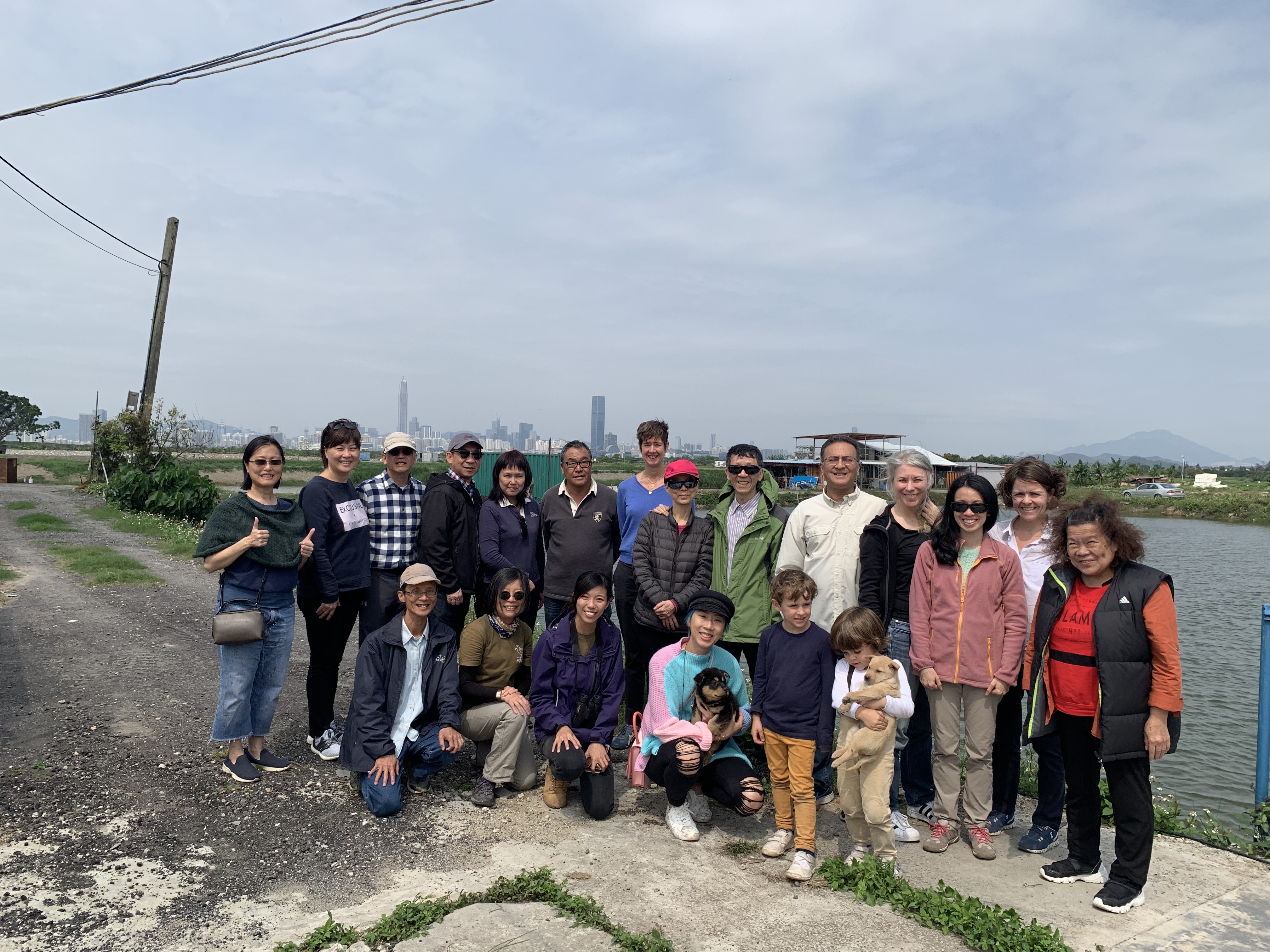Of Fish and Birds: Fishpond Visit and Lunch
Article and photos by Michele Wisla
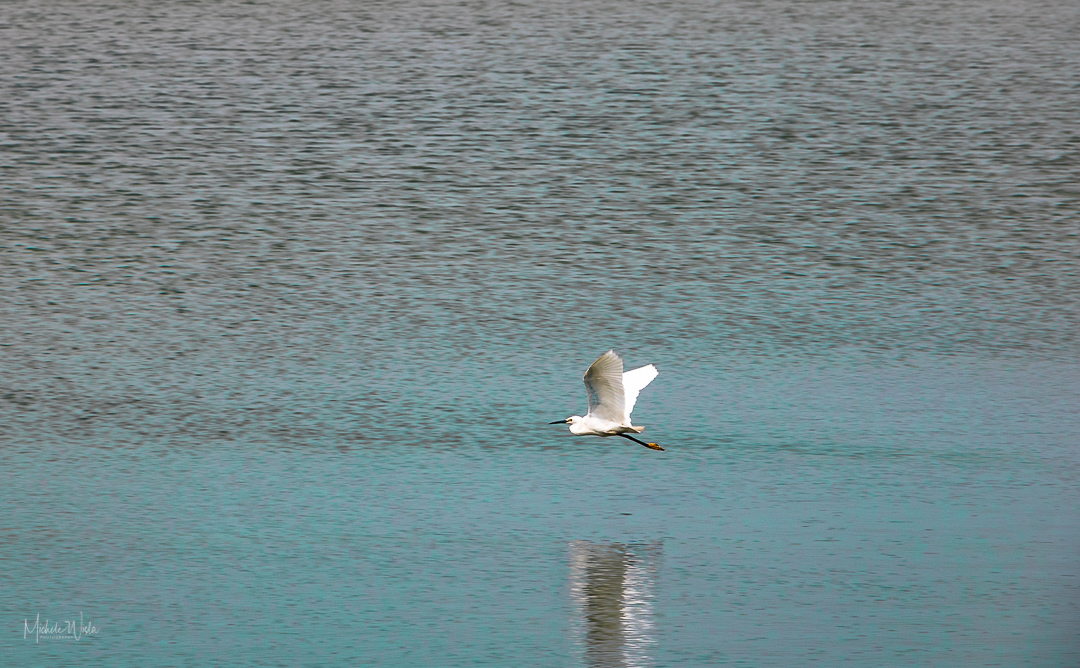
“A bird may love a fish but where would they build a home together?”
– Joseph Stein
In Yuen Long, New Territories it turns out.
An unexpected collaboration by two local groups of people in Hong Kong has blossomed as people in Hong Kong and around the world look for new ways to live in harmony with the planet. For several years the local fishermen in Tai Sang Wai, Yuen Long have cautiously teamed up with the Hong Kong Bird Watching Society. Learning about how these two groups have formed a partnership of sorts was inspirational for those who joined the most recent Slow Food Hong Kong event, a visit to local fishponds followed by a home cooked lunch at one of the fishermen’s homes.
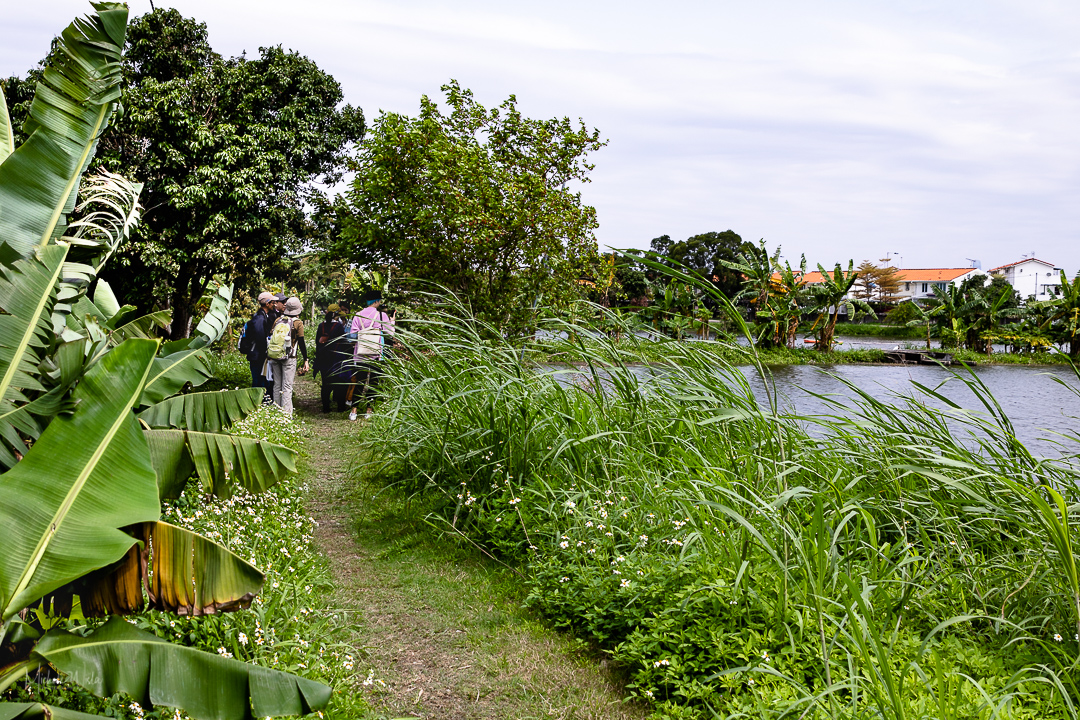
Entering the pond area through a small village of 70 households was like a walk back through time into a mellow world away from the hustle and bustle of the city. The path through the small well-kept houses lead to one hundred fish ponds, each the size of a football field pitch. Only ten of the households though are still actively engaged in fish farming using almost 1,000 hectares, as the elder generation’s lifestyle is dying out. There are a few exceptions and we met one, headed by Uncle Ken aged 91, his son and his grandson who are continuing the tradition of raising fish and shrimp in their fish ponds.
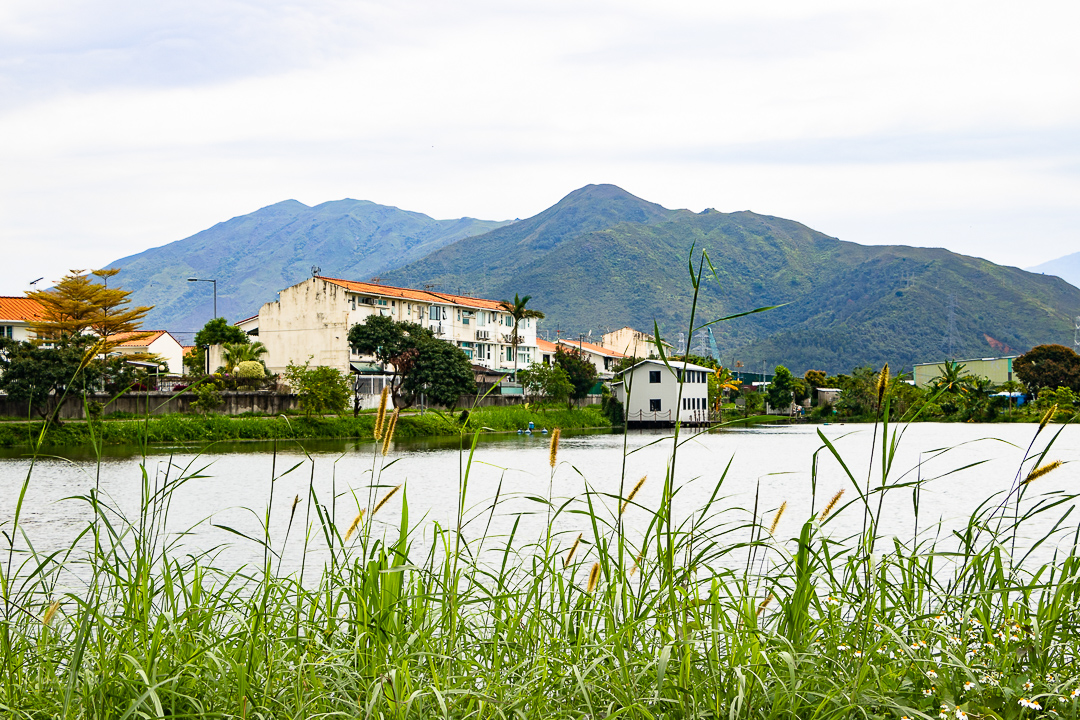
In the fish ponds we saw, four to six types of freshwater fish live together in each pond, using a mixed fish farming method. The types of fish in the ponds are tilapia, grey mallet, snakehead, bighead carp, eel and grass carp. Grass carp actually eat grass. Fisherman cut the grass around the ponds and throw it into the water where the grass carp, who live and swim closest to the surface, eat it. These fish are especially tasteful as compared to those who eat fish feed.
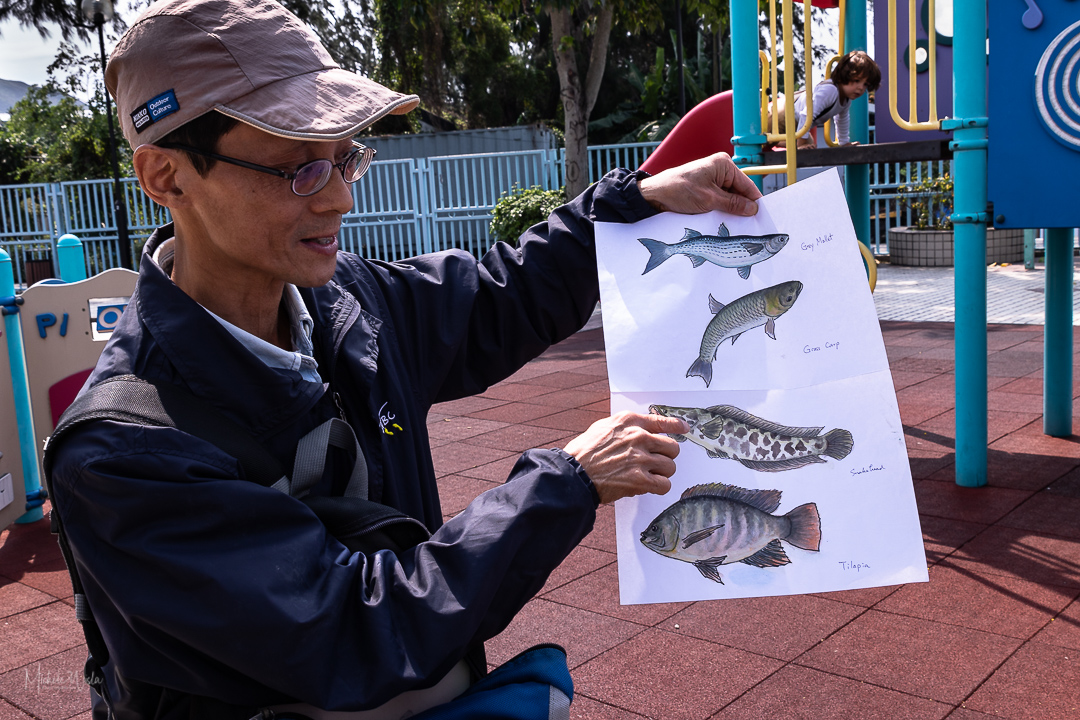
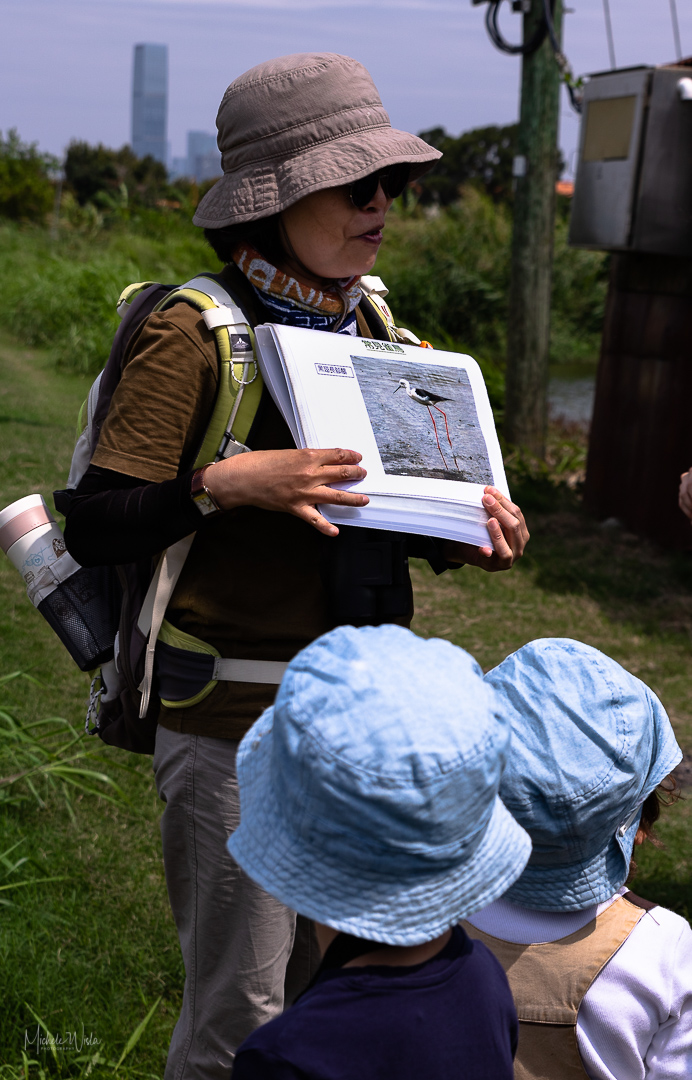
Members of the Hong Kong Bird Watching Society guided us. They became involved with the ponds and the fishermen in 2012 when they helped implement a conservation scheme encouraging the fisherman to keep up the practice of traditional fish farming while making their ponds hospitable to migratory birds each year. Hong Kong is in the middle of the bird’s flyway. The birds winter in Australia and New Zealand and fly back to Europe through Hong Kong. Many wetlands on their path are now gone, so the fishponds in Tai Sang Wai are evermore essential to the birds, as a resting point during their migration.
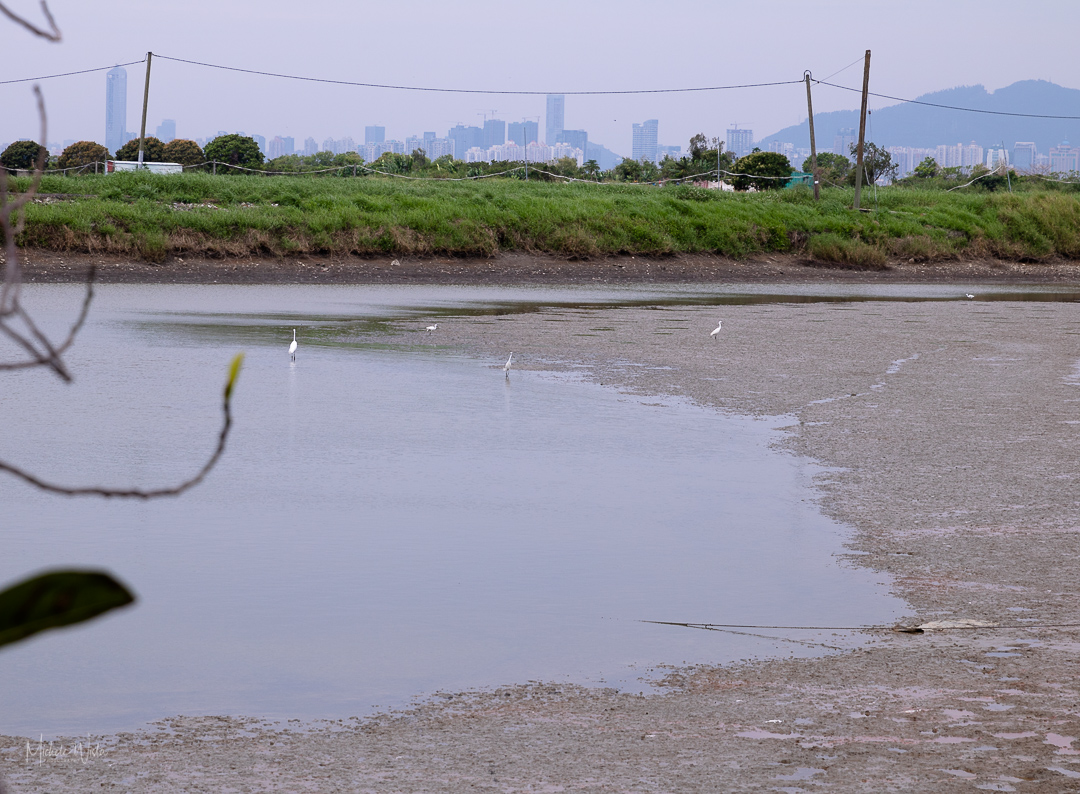
Normally the fishermen would not welcome migratory birds because they eat some of the fish. As the Hong Kong Bird Watching Society learned more about the fishermen and how important the fishponds have become to the birds, they decided to become more involved.
The conservation scheme encourages the fisherman not to chase away the birds and to drain off one meter of water for at least seven days every year, so the birds have a place to eat and rest during migration. In return the fishermen receive a subsidy. Eight hundred hectares of fishponds in the New Territories engage in the scheme. As part of the scheme, every two to three years the fishermen need to drain the entire pond for about a month in order to clean it of fish excrement. It’s refilled and the fishermen spend some time managing the health and pH levels of the fresh water before all the fish go in.
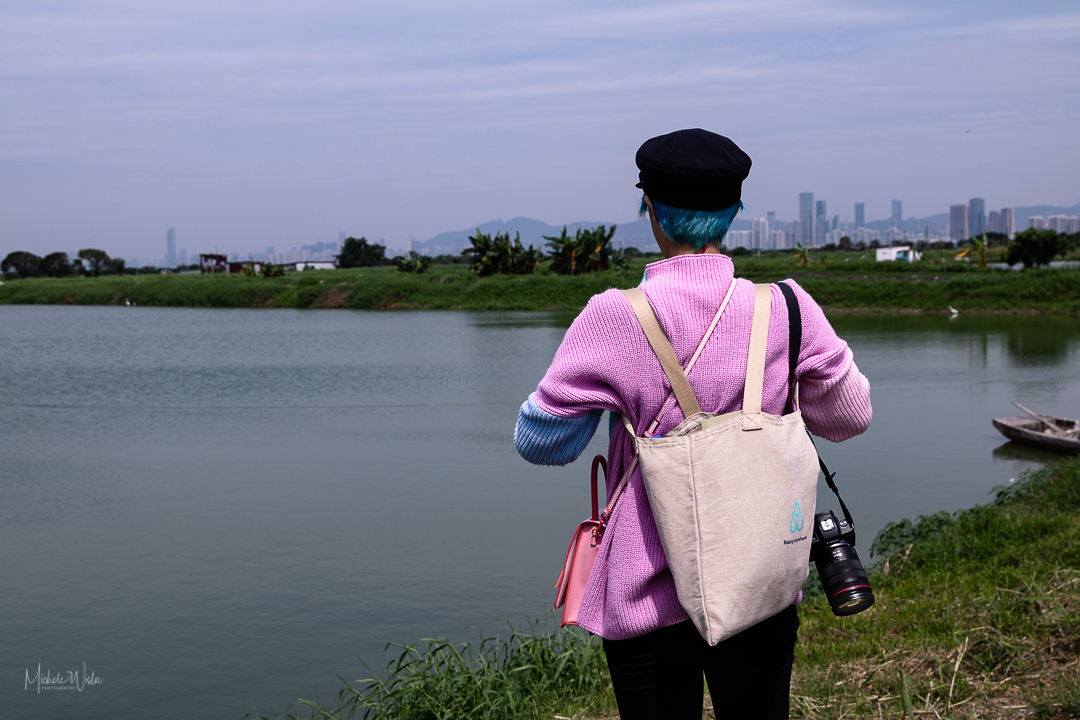
Walking around the ponds, we saw many migratory birds including an endangered Black Faced Spoonbill.
Last year the Bird Watching Society raised fish with one of the fishermen in one of the ponds to learn about how difficult it is raising fish and making a living as a traditional fisherman. They raised 20,000 Grey Mallet. Besides the difficulties involved in raising them they are not easy to sell in Hong Kong. Even though an eco-friendly fish, growing organically and tasting very good, they could only sell 5,000 fish in the grocery and online. Many people liked the fish, but there is too strong an impression in people’s mind that pond fish are not as good as sea fish.
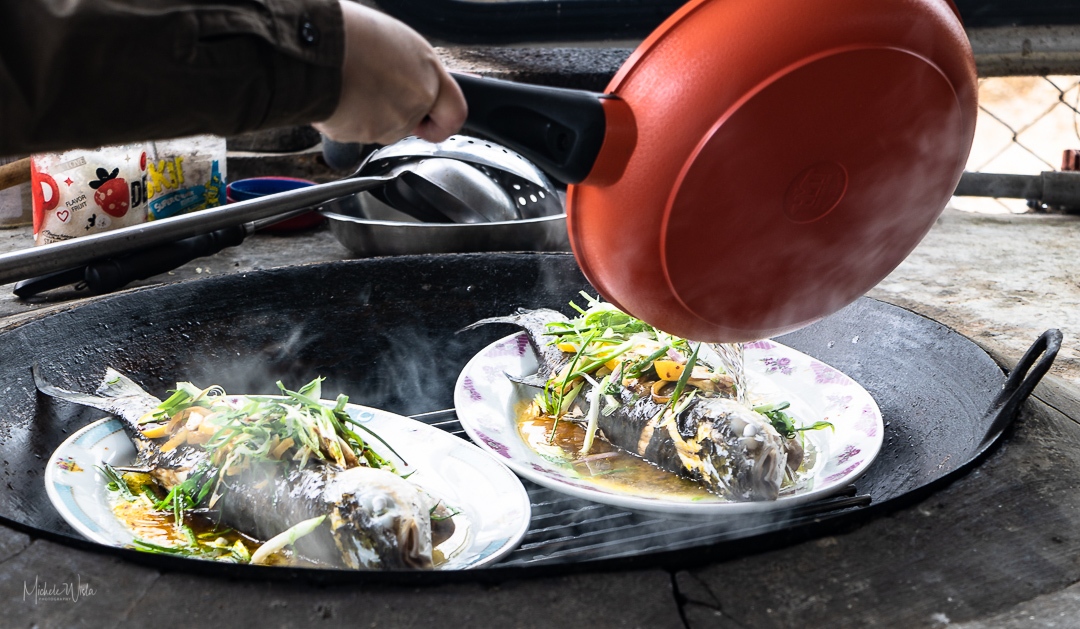
Seeing the lack of response in the marketplace, the Bird Watching Society is now starting a new program beyond just helping birds. They are working to encourage people to buy the local pond fish from these fishermen. They know that the fishermen are the largest stakeholder of the wetlands and their lifestyle needs to survive in order for the birds to stop during their migration. Learning how the fish and birds are dependent upon one another, the society has expanded their outlook to support the fishermen as well as the birds.
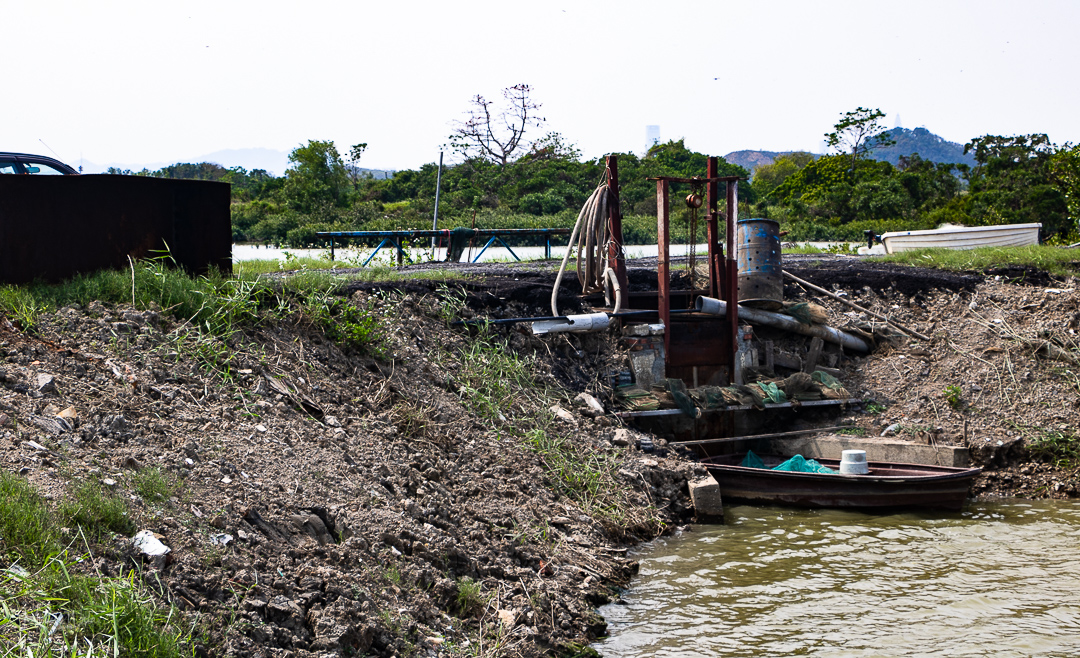
The last fish pond we saw made use of the traditional gai wai to harvest shrimp. It’s a gate that acts something like a dam. It’s opened up for shrimp to make their way into the pond from the river during a high-water time. The gate is then closed and as the water lowers a net is put on the outside part of the gate, so when the gate is raised and the water flows out, the shrimp will be caught in the net.
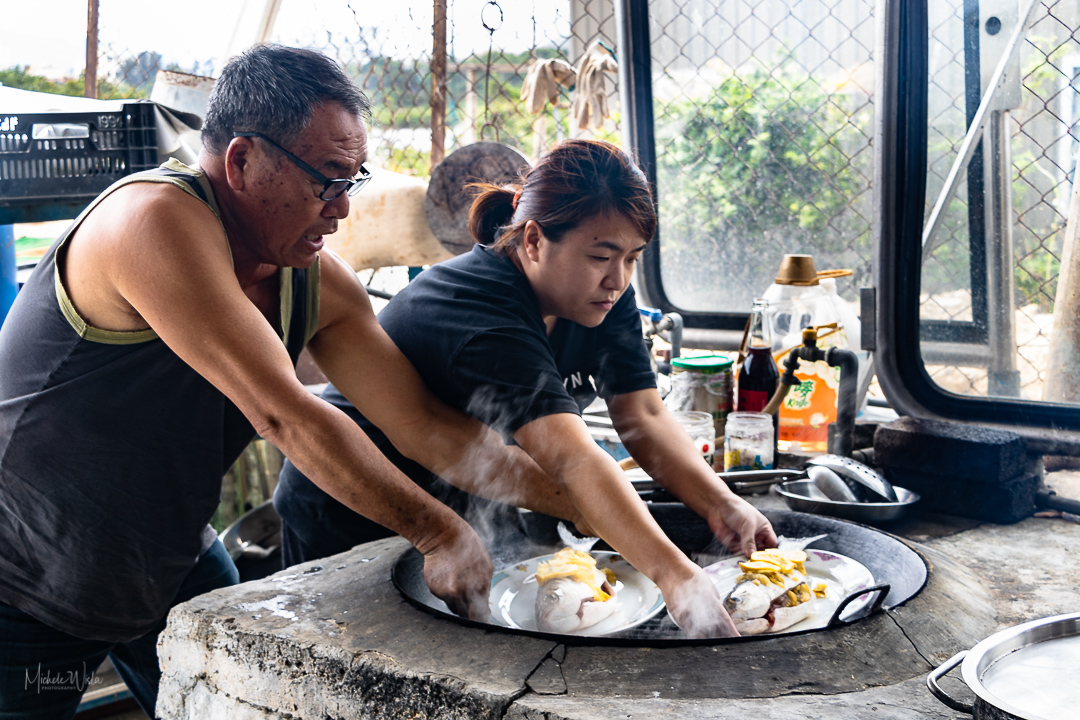
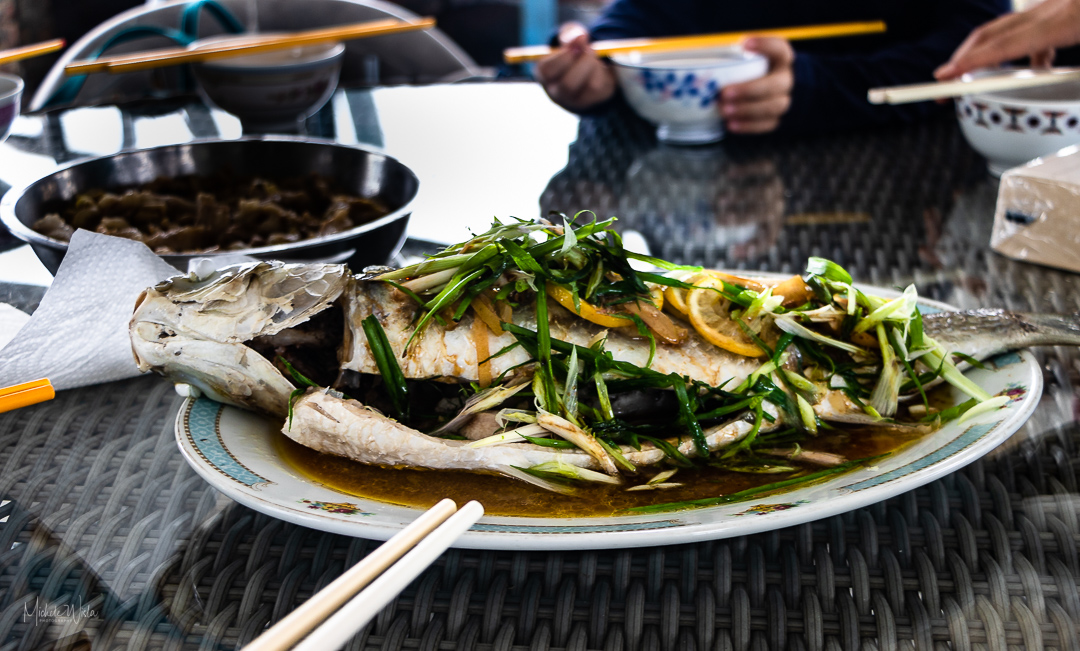
After our tour of the ponds, we were treated to a home-cooked lunch near the home of one of the fishermen, Mr. Chan. I’m not sure how much the location influenced my taste buds, but the fish and crab were especially superb – fresh and light. The crab tasted really special as the bite initially had a bit of firm resistance, while the inside flesh seemed to melt in my mouth. To compliment, we also tried the local cauliflower, lotus root and stir fried pork with preserved vegetables.
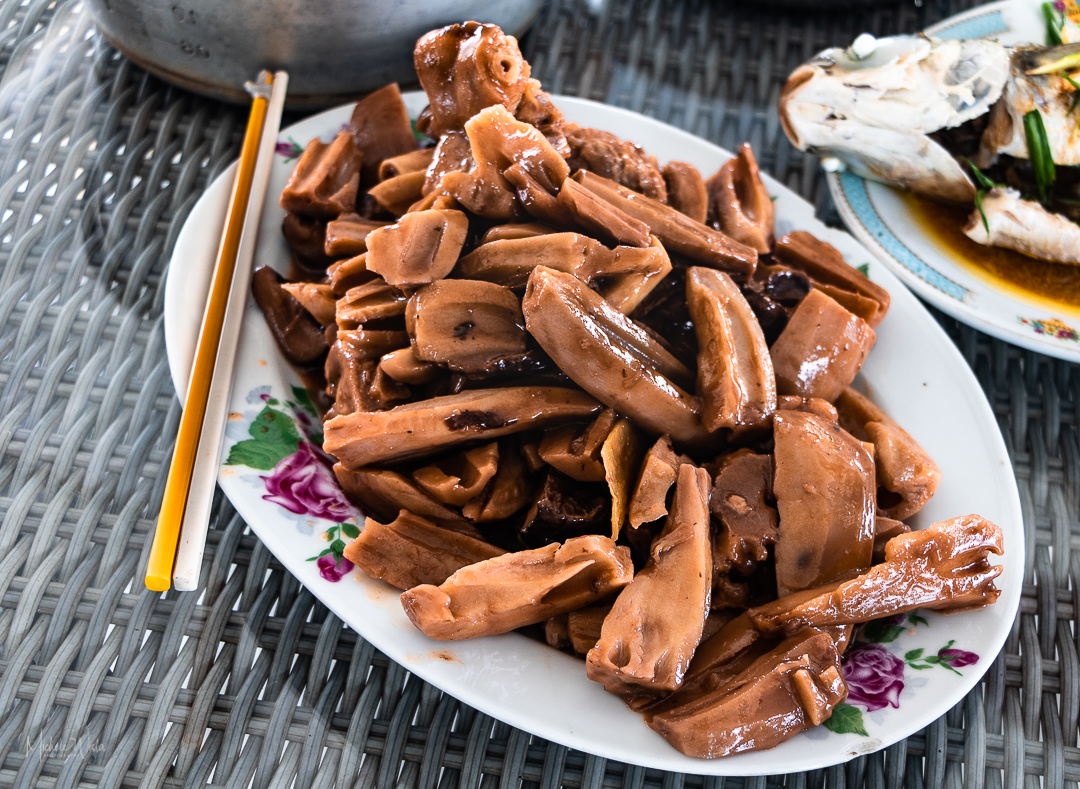
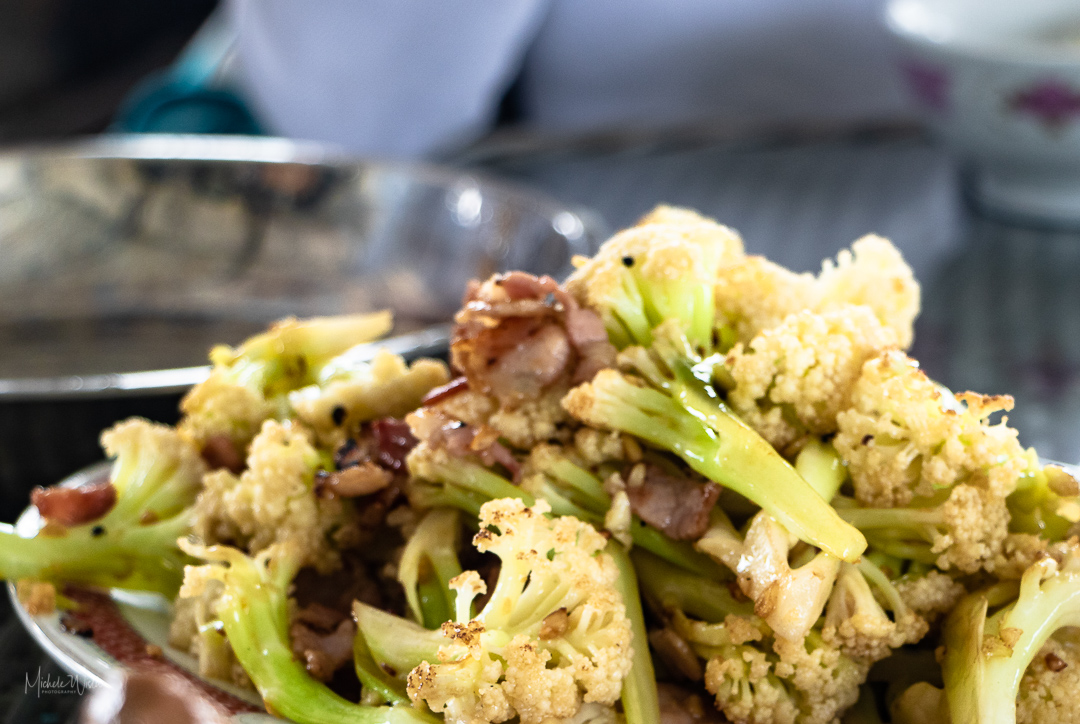
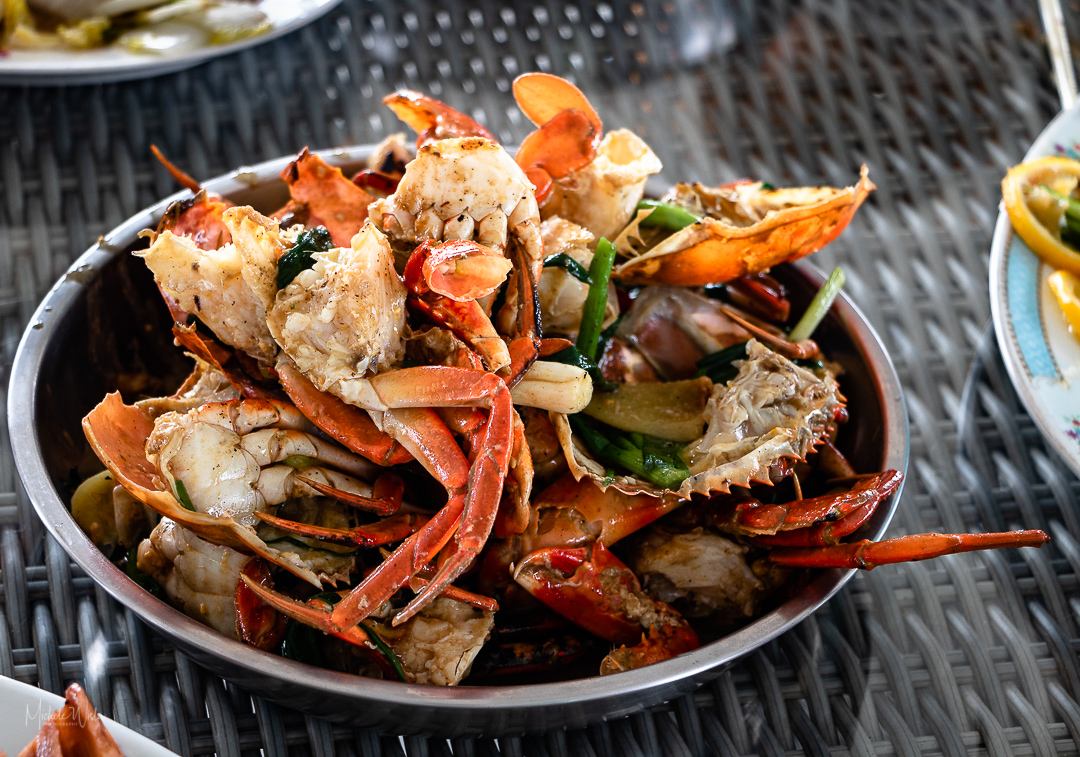
It was a thoroughly relaxing and educating day in one of Hong Kong’s hidden natural environments topped by a tasty meal.
